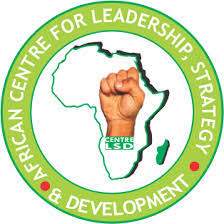Forum wants action on natural resource governance lapses
The African Centre for Leadership, Strategy and Development (Centre LSD) has urged the federal government to ensure that the laws governing mining and natural resource governance reflect peculiarities and realities of host communities for maximum benefits to the country and citizens. The Executive Director, Centre LSD, Mr. Monday Osasah, made the call on Thursday in […]

images 2024 05 31t070027.271
The African Centre for Leadership, Strategy and Development (Centre LSD) has urged the federal government to ensure that the laws governing mining and natural resource governance reflect peculiarities and realities of host communities for maximum benefits to the country and citizens.
The Executive Director, Centre LSD, Mr. Monday Osasah, made the call on Thursday in Abuja at the validation of research report on ‘West African Regional Policies on Natural Resource Governance: Lessons and Policy Recommendations for Nigeria’ and the inauguration of the Natural Resource Governance Group (NRGG).
He said the research is about looking deeply at West African mining laws and get lessons from them to improve what is being done in Nigeria, with the support of the Ford Foundation.
“The actual lesson from Nigeria is the focus. But that focus has to do with the review of West African mining laws and policies. I was privileged to read part of the documents and I am so convinced that this work will be a good reference material for every one of us.
- Only 10% of govt contracts executed by women, UN body laments
- After decade-long manhunt, police arrest suspect over killing of 8
“One of the challenges that I also want to note is that as soon as the research report is produced, there will be a lot of takeaways for different organisations working in the asphalting sector in Nigeria. So, the learnings will really go deeper into making natural resource management effective in Nigeria,” Osasah said.
Presenting the report, Peter Akper (SAN), a Professor of Law who is the Team Lead of the Study Group that evolved the Report, said Natural Resource Governance (NRG) is the set of norms, institutions and processes that govern the exercise of power, decision-making, and participation of citizens in managing natural resources.
He said that NRG is central to socio-economic discourse of the people because of increased awareness and demand by the people that their natural resources should be sustainably exploited and the proceeds properly managed for the benefit of the people.
“Despite the ECOWAS region’s vast mineral resources, such as antimony, bauxite, chromium, copper, copper-gold, diamond, gold, heavy minerals, iron ore, lead zinc, manganese, and petroleum, it suffers from the ‘resource curse’ or ‘paradox of plenty’ as the natural resource has yet to translate in the improvement of the living conditions of the people.
“The extractive sector has developed in enclaves thereby limiting its potential to catalyse broad-based development in line with the African Mining Vision,” Akper said.
He noted that the absence of appropriate NRG frameworks and poor implementation due to weak laws and institutions have made the ECOWAS region susceptible to intersectional issues like natural resource-induced conflicts, benefit sharing agitations, lack of inclusivity, discrimination, sexual gender-based violence, and occupational health and safety concerns.
The report shows that the ECOWAS Regional Instruments and National policies and laws do not adequately address intersectional issues like child labour, gender discrimination, PWD, SGBV, and other inequalities in the extractive sector.
It therefore urged the ECOWAS Commission to act appropriately.
